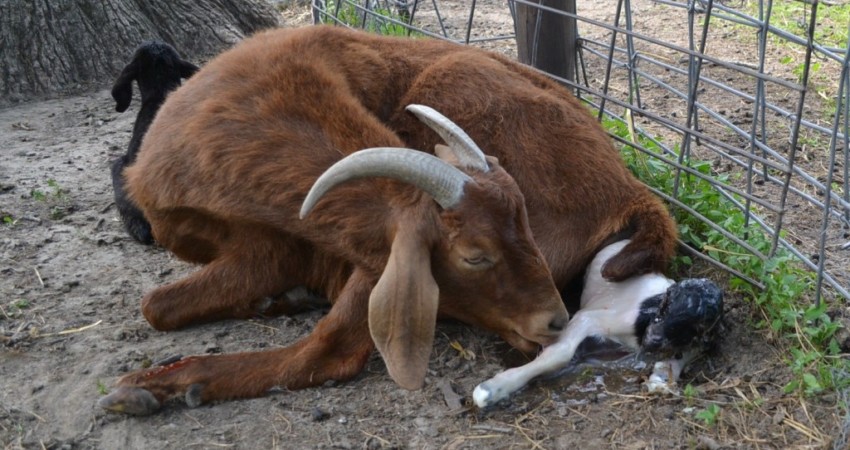

Abortions In Goats:
Goat herds generally have a 2 to 5 percent abortion rate. Any percentage above this is a serious problem because abortions can lead to economic losses. Indeed, infectious Abortions In Goats herd can be a public health concern because infectious agents that cause abortions in goats can also infect and cause diseases in humans. Infectious abortions in goats should be taken seriously by the producer and herd manager.
Campylobacter (Vibrio)
This unpleasant infection is orally transmitted via infected feces and is highly contagious to both goats and humans. The doe will generally miscarry in the last 6 weeks to a month before her due date and the kid will more than likely be stillborn or very, very weak. Once ingested the organism will work its way along the intestinal tract towards the uterus and, subsequently, the foetus. It will, in turn, cause the foetus’s body cavities to fill with fluid and eventually cause the foetus to abort. Mum will also be severely affected by diarrhea, a vaginal discharge, possible depression, a uterine infection and a retained placenta.
To help prevent further spreading of the infection ensure that the herd’s water source is clean and away from any possible cause of infection, remove all material discarded after birthing such as the placenta, even in healthy goats, and provide an antibiotic treatment programme for the entire herd.
Chlamydia
Chlamydia is spread through the faeces of infected birds and bloodsucking insects or parasites such as ticks. The kid will be aborted around 3 weeks before the due date and will more than likely be either stillborn or extremely weak. Once the bacteria enters the doe’s bloodstream it attacks the placenta, causing it to inflame, and preventing the foetus from receiving the sustenance and nutrients required for development. Around 3 days before the miscarriage the doe will exhibit a bloody, vaginal discharge and after she has aborted she will have a discharge which then contains the Chlamydia infection and will most certainly need treatment to prevent loss in further pregnancies as well as the spreading of the infection.
Toxoplasmosis
This is an incredibly dangerous disease which can also have the same outcome for a pregnant human female as it does the goat and is caused by ingesting anything that is contaminated by the faeces of a cat carrying T. gondii. The bacteria makes it’s way to the placenta of a pregnant goat where it will multiply and then be passed on to the foetus. This can result in still birth, the birth of very weak kids or even mummification of the foetus. The doe can also suffer some terrible side effects including muscle spasms, respiratory problems, gastroenteritis, jaundice and even inflammation of the brain.
Obviously it is not possible to prevent either yours or your neighbors cats from defecating on your grazing land but it is always a good idea to have your cats regularly tested for T.gondii micro-organisms for peace of mind and to also take the time to inspect your grazing and sleeping areas for any cat feces and to carry out the removal in a sanitary manner.
It’s also well worth investing in ultrasound equipment so that you have a chance to detect these infections before they get out of hand. It may not be possible to save the infected foetus of even the doe but you can take steps to protect the rest of the herd and hopefully take the appropriate action before any further infection sets in.
 Contact Jaguza Support
Contact Jaguza Support